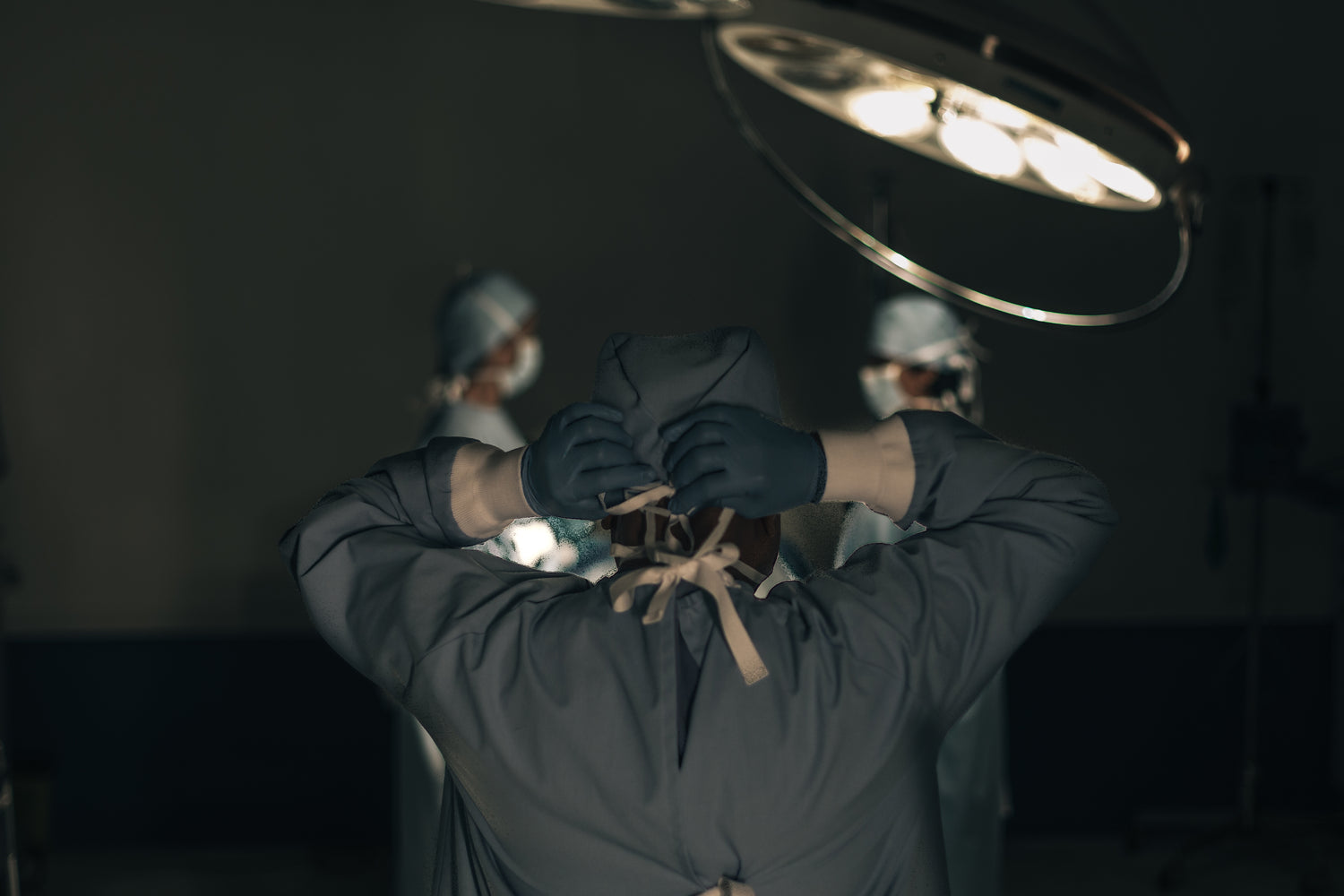
Post-Surgical Healing: The Application of Regenerative Medicine
Regenerative medicine is rapidly becoming an integral part of post-surgery recovery plans, revolutionising the way patients heal. From plastic surgery to orthopaedic procedures like knee surgeries, regenerative medicine offers cutting-edge solutions that accelerate the healing process, reduce downtime, and enhance overall outcomes. More practitioners are turning to these advanced therapies to help their patients recover faster, with less pain and fewer complications.
One of the leading options in this field is T-Lab's range of regenerative medicine solutions, which are designed to promote natural healing and restore function at a cellular level. With the growing demand for effective, safe, and minimally invasive post-surgical treatments, regenerative medicine is transforming the standard of care. T-Lab’s innovative products harness the body’s natural healing mechanisms to support tissue repair, reduce inflammation, and improve long-term recovery. Whether it’s a cosmetic procedure or a major surgery, incorporating regenerative therapies can significantly enhance patient outcomes by reducing scarring, boosting cellular regeneration, and promoting faster recovery.
PRP & PRF
Platelet-Rich Plasma (PRP) and Platelet-Rich Fibrin (PRF) are two of the most widely known and commonly used regenerative medicine treatments, particularly after surgery. These innovative therapies have gained immense popularity across a myriad of sectors and treatment areas due to their effectiveness in enhancing the body’s natural healing processes. Initially, clinicians introduced PRP in jaw surgeries, but today, PRP and PRF are routinely applied post-surgery to support the healing of muscles, tendons, and ligaments, promoting faster recovery and improved patient outcomes.
As regenerative medicine continues to evolve, PRP and PRF have become cornerstone therapies in post-surgical recovery, thanks to their ability to reduce inflammation, accelerate tissue repair, and minimise scarring. Whether used in orthopaedic, cosmetic, or general surgical procedures, these treatments offer a natural, safe, and effective solution for post-surgery healing.
T-Lab offer a clean, high quality PRP and PRF that are perfect for post-surgical procedures. By being gel-free and employing micropoloshing technology, these tubes offer an industry-leading platelet recovery rate that is free of thixatropic gel and perfect for post-surgery healing.
Exosomes and Exomine
For the past decade or so, research on regenerative medicine in post-surgical healing has focused on the potential role of exosomes, especially after plastic surgery. A 2023 literature review analysed 62 exosome-related studies and articles from the last 10 years, to see what the current evidence is for exosomes in aesthetic plastic surgery, and how these products are incorporated in a clinical setting.
Applications in aesthetic surgery included:
- Nonsurgical skin rejuvenation
- Scar revision
- Hair restoration
- Weight loss and Body and Breast Contouring
Generally, studies showed promise in animal, cell and clinical trials for the use of exosomes after aesthetic plastic surgery, showing an increased level of skin rejuvenation, scar revision, hair restoration and fat graft survival after surgery when exosomes were applied. (Ying, 2023)
T-Lab’s Exomine product, derived from autologous exosome-rich plasma, is designed to harness these exact benefits, making it an ideal option for clinicians looking to integrate exosome therapy into aesthetic plastic surgery. Exomine can be used to support skin regeneration, improve scar healing, and enhance overall surgical outcomes, offering a cutting-edge solution in post-surgical recovery.
Dermomine
The potential of Autologous Micrografting Technology in surgical treatments are vast, and current research shows great promise. A number of studies have been conducted in various areas looking at micrografting in surgery, including:
- The use of micrografts in the reconstruction of full-thickness posttraumatic skin defects of the limbs (Riccio et al, 2019)
- Micrografting to improve regeneration of tissue-engineered urinary conduits in urogenital reconstructive malformation surgery (Juul, 2024)
- Micrografting to support healing after a hair transplant
T-Lab’s Dermomine product is a prime example of how autologous micrografting technology can be applied to improve surgical outcomes. Designed to enhance tissue regeneration using the patient’s own cells, Dermomine can be effectively used in cases such as posttraumatic skin reconstruction, urogenital surgeries, and even hair transplant procedures. By promoting faster healing and reducing the risk of complications, Dermomine offers clinicians an advanced, autologous solution for optimising post-surgical recovery across a range of treatments.
References
Ku YC, Omer Sulaiman H, Anderson SR, Abtahi AR. The Potential Role of Exosomes in Aesthetic Plastic Surgery: A Review of Current Literature. Plast Reconstr Surg Glob Open. 2023 Jun 12;11(6):e5051. doi: 10.1097/GOX.0000000000005051. PMID: 37313480; PMCID: PMC10259637.
Riccio M, Marchesini A, Zingaretti N, Carella S, Senesi L, Onesti MG, Parodi PC, Ribuffo D, Vaienti L, De Francesco F. A Multicentre Study: The Use of Micrografts in the Reconstruction of Full-Thickness Posttraumatic Skin Defects of the Limbs-A Whole Innovative Concept in Regenerative Surgery. Stem Cells Int. 2019 Dec 1;2019:5043518. doi: 10.1155/2019/5043518. PMID: 31885613; PMCID: PMC6915006.
Juul, N., Amoushahi, M., Willacy, O. et al. Autologous micrografting improves regeneration of tissue-engineered urinary conduits in vivo. Sci Rep 14, 22028 (2024). https://doi.org/10.1038/s41598-024-72876-0
